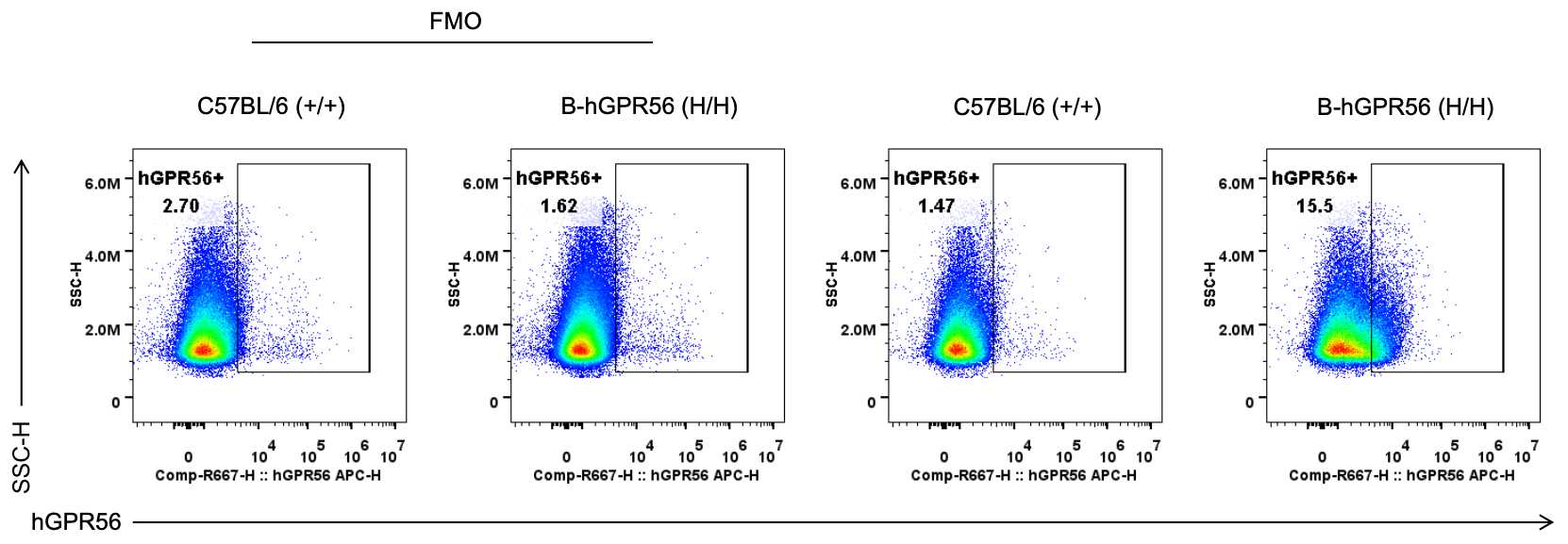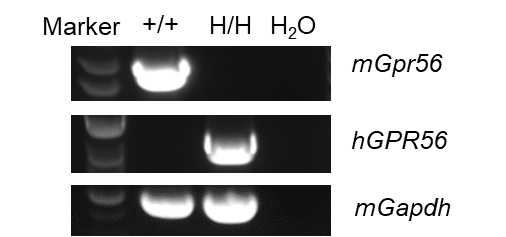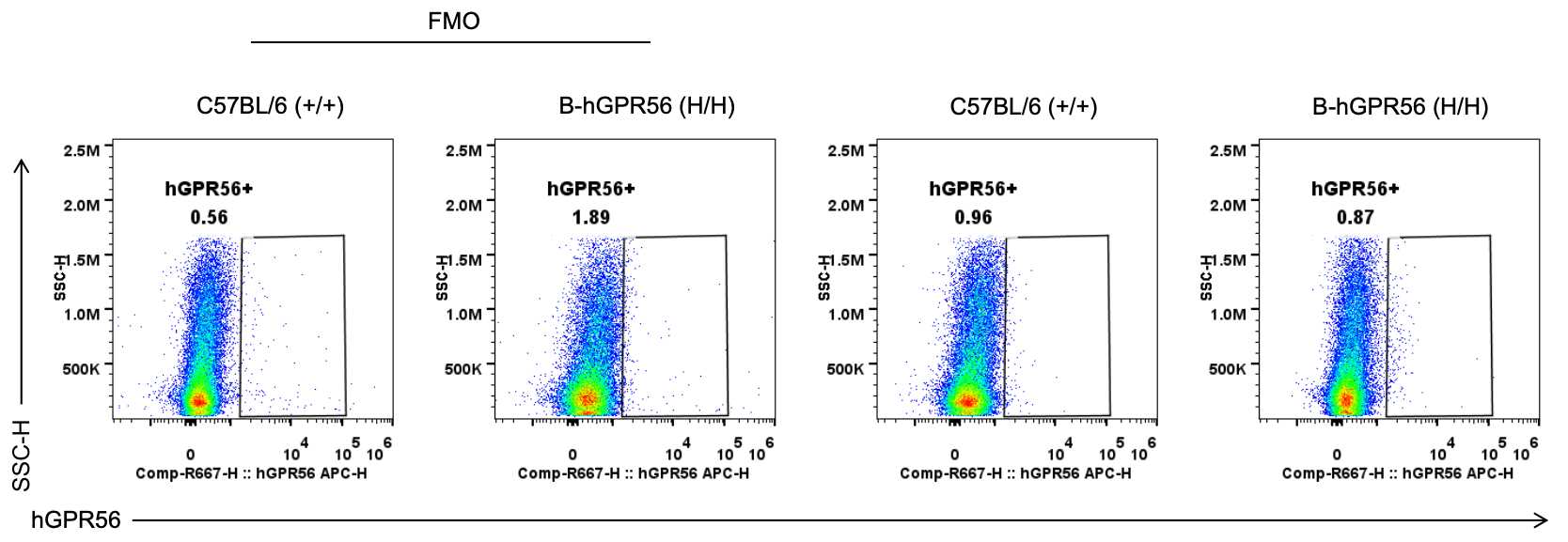
C57BL/6-Gpr56tm1(GPR56)Bcgen/Bcgen • 113167
Gene targeting strategy for B-hGPR56 mice. The exons 1-14 of mouse Gpr56 gene that encode the whole molecule (ATG to STOP codon) were replaced by human counterparts in B-hGPR56 mice. The promoter, 5’UTR and 3’UTR region of the mouse gene were replaced by the promoter, 5’UTR and 3’UTR region of the human gene.

GPR56 expression analysis in wild-type C57BL/6JNifdc mice and homozygous humanized B-hGPR56 mice by flow cytometry. Brain cells were collected from wild-type C57BL/6JNifdc mice (+/+) (male, 6-week-old, n=1) and homozygous B-hGPR56 mice (H/H) (male, 5-week-old, n=1). Protein expression was analyzed with anti-human GPR56 antibody (Biolegend, 391906) by flow cytometry. Human GPR56 was exclusively detectable in brain of B-hGPR56 mice but not in wild-type mice.

Strain specific analysis of GPR56 mRNA expression in wild-type C57BL/6JNifdc mice and B-hGPR56 mice by RT-PCR. Brain RNA were isolated from wild-type C57BL/6JNifdc mice (+/+) and homozygous B-hGPR56 mice (H/H), then cDNA libraries were synthesized by reverse transcription, followed by PCR with mouse or human GPR56 primers. Mouse Gpr56 mRNA was only detectable in wild-type mice. Human GPR56 mRNA was exclusively detectable in homozygous B-hGPR56 mice but not in wild-type mice.

GPR56 expression analysis in wild-type C57BL/6 mice and homozygous humanized B-hGPR56 mice by flow cytometry. Large intestine cells were collected from wild-type C57BL/6 mice (+/+) (male, 6-week-old, n=1) and homozygous B-hGPR56 mice (H/H) (male, 6-week-old, n=1). Protein expression was analyzed with anti-human GPR56 antibody (biolegend, 391906) by flow cytometry. Human GPR56 was undetectable in the large intestine of both B-hGPR56 mice and wild-type mice.